OKC businesses don't always comply with service dog laws, Public Eye investigation finds
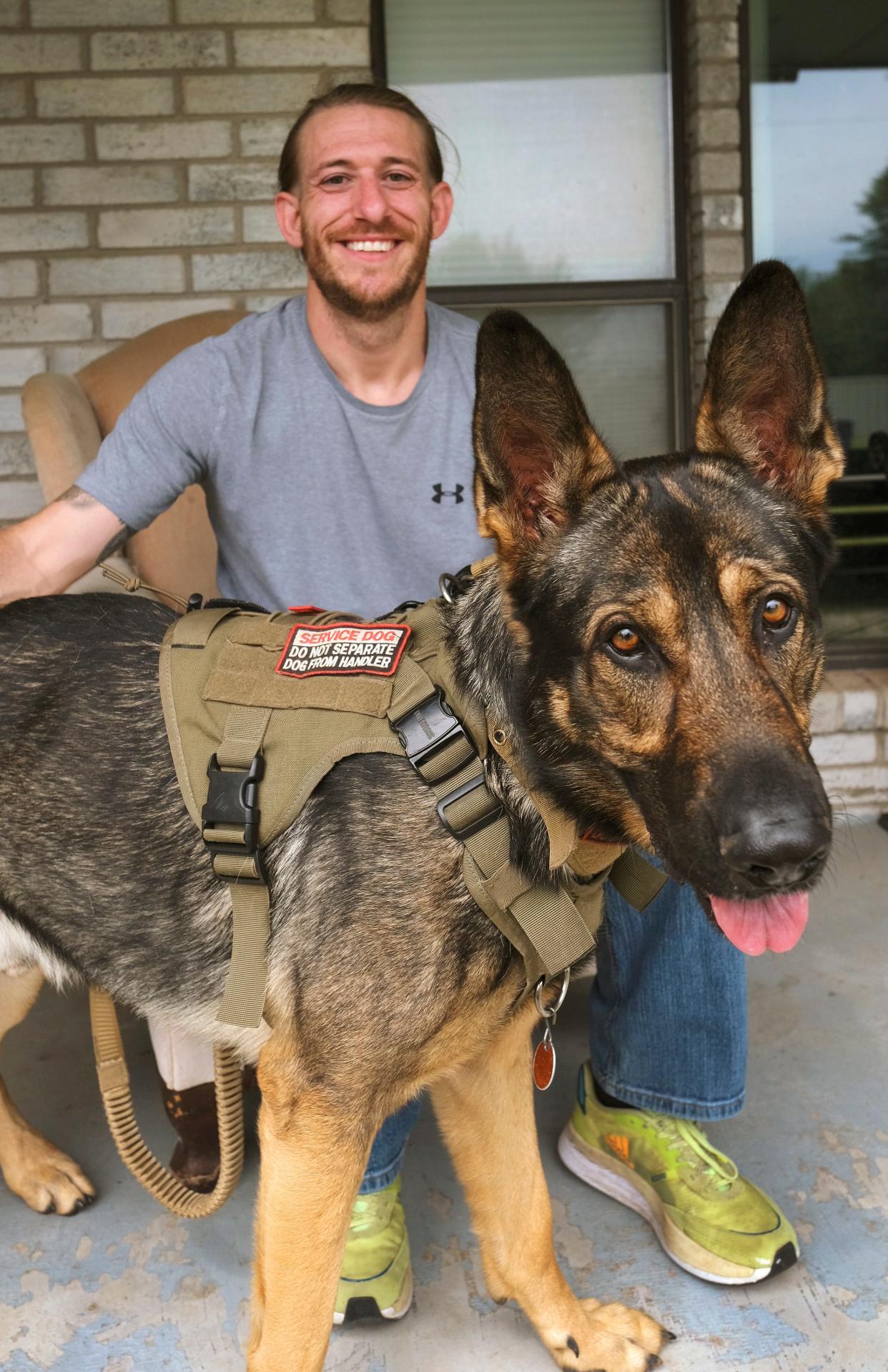
An Oklahoma City man says confusion over his service dog has led to high anxiety at several metro services and locations that have either denied him access or made him feel intimidated.
Casey McGarry, 34, told Public Eye that he needs his service dog, a 2-year-old German shepherd named Atlas, to help him navigate public spaces, but many people are unaware of his rights.
The problem: Some business owners say a service dog can't come in
McGarry told Public Eye he has narcolepsy. The Mayo Clinic describes narcolepsy as a sleep disorder that leads to drowsiness during the daytime.
Atlas helps him wake up in the morning, stay on his eating schedule and safely deal with hallucinations during the day, McGarry said.
“I disassociate to where parts of the world are in a haze,” McGarry said. “He pulls me away from the road and cars, and daydreaming into traffic.”
Atlas typically wears a patch that notifies people he is a service dog and which says, “Access required by law. No exceptions.”
However, some in the public don’t accommodate the service dog, and by extension McGarry.
He posted videos online of some of the interactions, including at a metro gas station and convenience store where he was told no pets were allowed; at a local charity center where he purportedly was told to tie up Atlas outside; and on a public bus where McGarry said the driver didn’t understand his rights and got confrontational.
McGarry said Atlas recognized his anxiety was growing and the dog comforted him. He got off the bus at the next opportunity.
“It's a scary thought to know if I’m disabled, and my dog is trained to protect me, and somebody continuously keeps pushing and threatens me, and my animal is trained to react — it’s a scary thought that my service animal who helps me get up every day could be taken to quarantine because of someone else's ignorance,” McGarry said.
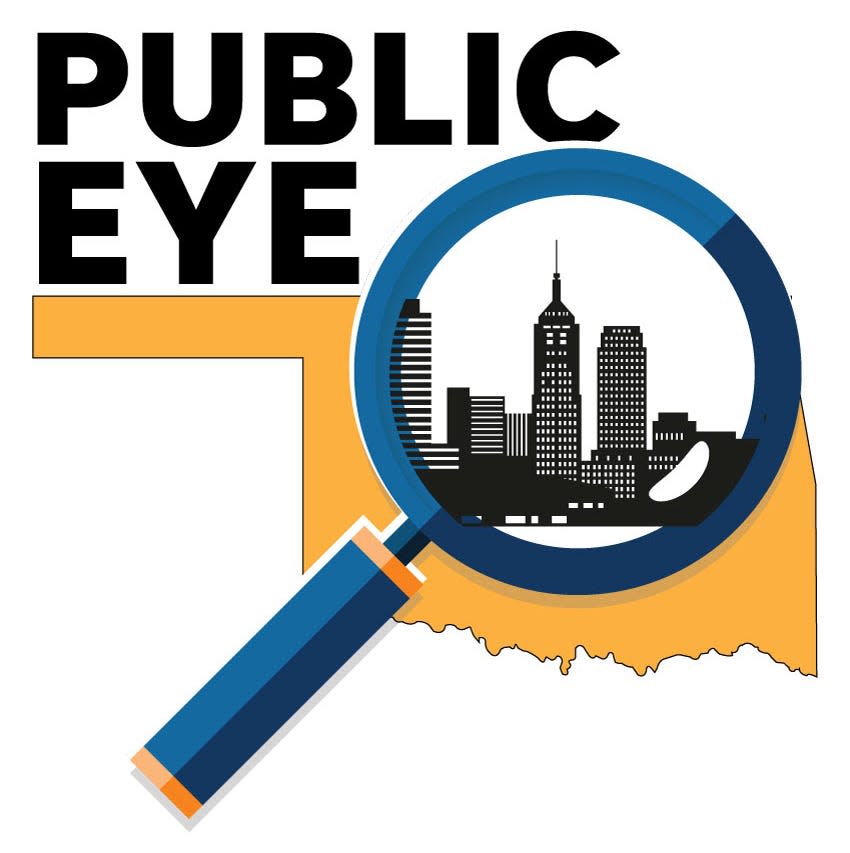
What we found: Federal law provides rights for service animals, but pay attention to definitions
A person’s right to use a service animal is protected under the Americans with Disabilities Act, according to the Developmental Disabilities Council of Oklahoma.
Under the ADA, service animals are limited to dogs, but the council says entities must make reasonable modifications allowing for miniature horses if they have been trained to perform tasks for individuals with disabilities.
This includes physical, sensory, psychiatric, intellectual and other mental disabilities, the council says.
A service dog may accompany their handler to any building or facility where the public, program participants, customers or clients are allowed, according to the council.
What two questions can business owners ask service dog owners?
Handlers may be asked only two questions regarding a service dog:
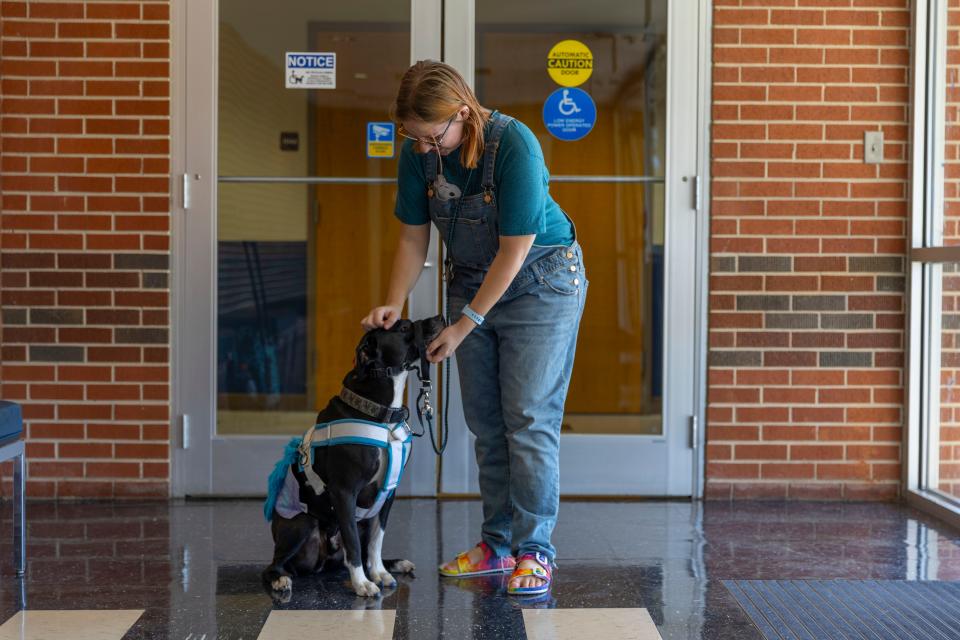
Is this dog required because of a disability?
What task has this dog been trained to do?
A handler may not be pressed further, Keith Wilkinson, Oklahoma City’s ADA coordinator, told The Oklahoman.
“You’re not allowed to ask about a person’s disability,” he said.
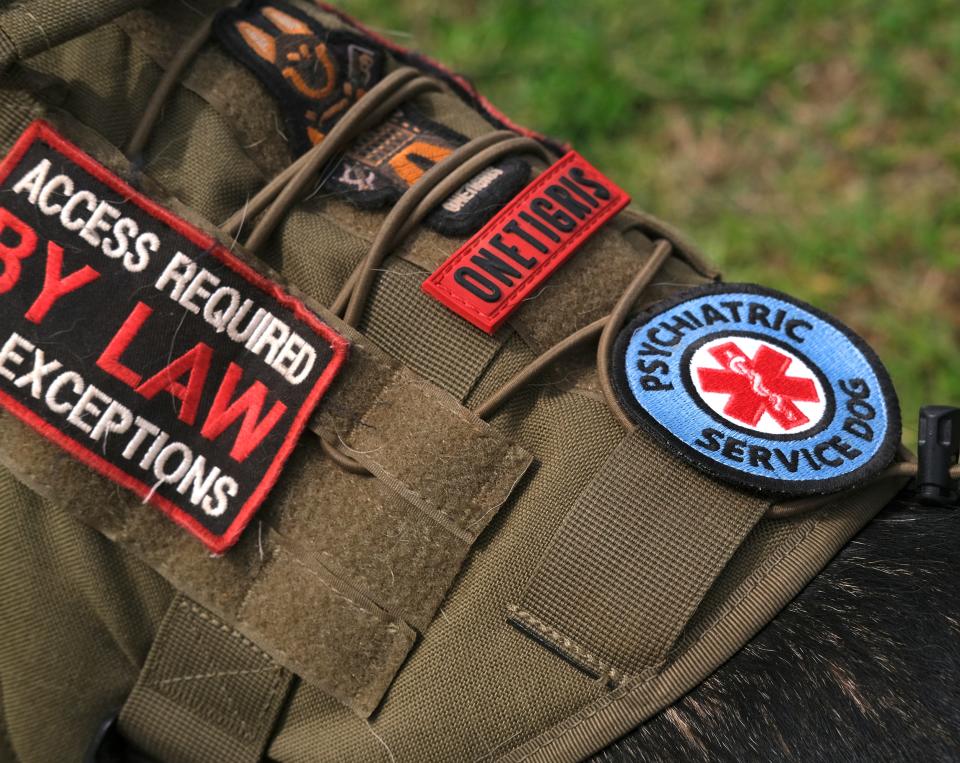
Do service dogs have to wear labeled vest or carry a license?
Service dogs are not required to wear a vest or badge while working. They should be vaccinated according to state and local laws.
Handlers don’t have to provide a special license.
If a service dog behaves poorly — such as barking out of control, growling, jumping or running away from the handler — the handler may be prohibited from entering such spaces.
Do service dogs and emotional support animals have the same rights?
Persons using emotional support or therapy animals are not entitled to the same rights as service animals under the ADA, the council says.
A doctor’s note does not transform a pet into a service animal, according to the council.
McGarry said the proliferation of emotional support animals might be making it difficult for the public to make the distinction.
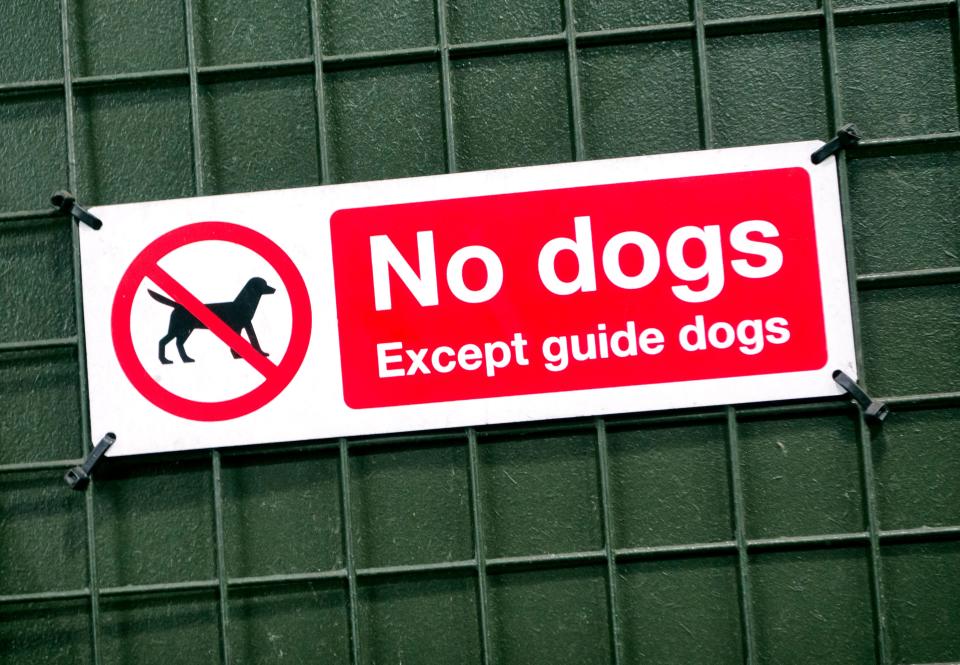
“It’s very hard to determine who is a service dog and who isn’t,” he said.
Brian S. Wilkerson, director of litigation and legal services for the Oklahoma Disability Law Center, said the definition of a service dog can be “murky” to some.
There may be situations where an emotional support animal is trained to help with protected disabilities and therefore would also be considered a service animal as well.
“You only have protections of the ADA if it’s a service animal,” he said.
More: Public Eye investigates issues that impact you. This is what we've found so far
What's next: What business owners should know and where to go for insight
Wilkerson said “99 percent” of service dog use in public is protected under the ADA.
While it is expected that the handler will train the service dog or work with a trainer, people should not demand handlers show proof.
“There is nothing under the ADA that requires a service animal to be licensed or have a certificate of training,” he said. “They should be allowed into wherever the public is allowed.”
More: Oklahoma City Animal Shelter closes a third time after illness resurges
Wilkerson said his group doesn’t litigate such matters but will send demand letters to those in violation of the ADA. In egregious cases, the group will notify the U.S. Department of Justice.
Some business owners not only comply but also welcome back those who have been turned away because of a misunderstanding about a service dog, Wilkerson said. In some cases, they offer coupons and discounts when the handler returns.
Wilkinson, the ADA coordinator for Oklahoma City, has seen similar responses when investigating cases.
“A lot of times, it’s just the training of the employees, not necessarily the business owner,” he said. “I rarely get any problems.”
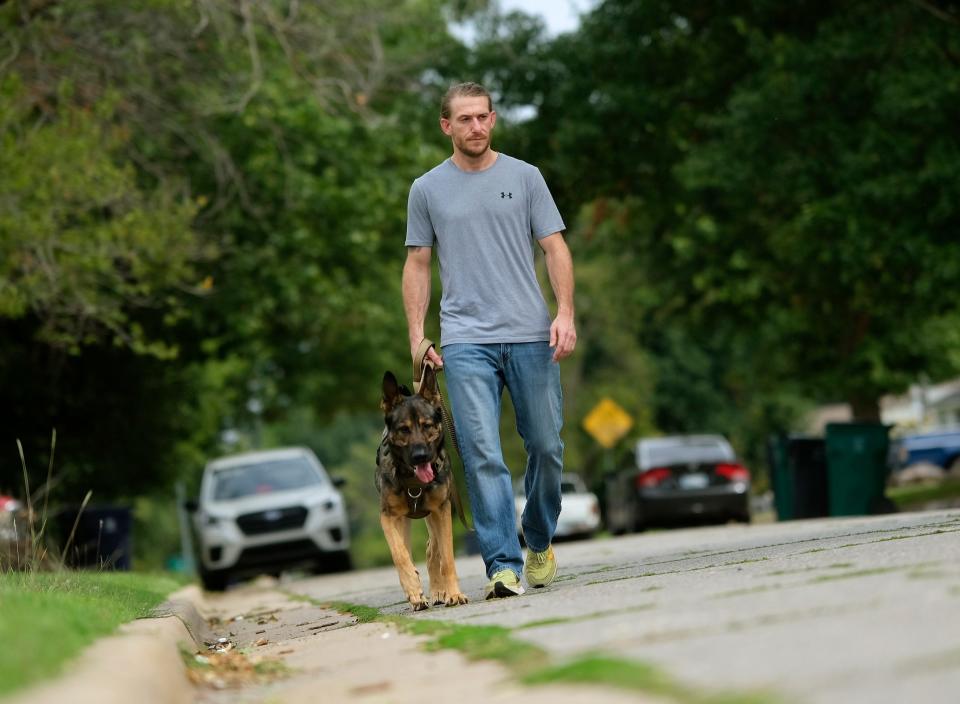
McGarry wants people to know how being turned away impacts people who use service dogs. A dispute on a public bus could lead to not getting a ride to a doctor’s appointment or classes, he said.
“It’s been incredibly difficult and at times added more anxiety than not having him with me,” McGarry said. “At the end of the day, it messes with my psyche. I understand not everybody knows the law. I don’t know what else to do but try to inform them — hey, he’s a service dog. We have rights.”
Those with more questions about the issue are encouraged to contact the Oklahoma Disability Law Center at 405-525-7755.
Have a problem? Let Public Eye help. Email us at publiceye@oklahoman.com.
This article originally appeared on Oklahoman: Some OKC businesses refusing service dogs despite federal law

